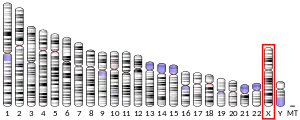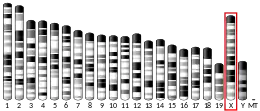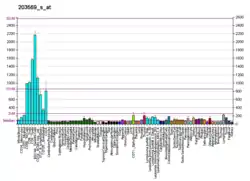| OFD1 | |||||||||||||||||||||||||||||||||||||||||||||||||||
|---|---|---|---|---|---|---|---|---|---|---|---|---|---|---|---|---|---|---|---|---|---|---|---|---|---|---|---|---|---|---|---|---|---|---|---|---|---|---|---|---|---|---|---|---|---|---|---|---|---|---|---|
| Identifiers | |||||||||||||||||||||||||||||||||||||||||||||||||||
| Aliases | OFD1, 71-7A, CXorf5, JBTS10, RP23, SGBS2, oral-facial-digital syndrome 1, centriole and centriolar satellite protein, OFD1 centriole and centriolar satellite protein | ||||||||||||||||||||||||||||||||||||||||||||||||||
| External IDs | OMIM: 300170 MGI: 1350328 HomoloGene: 2677 GeneCards: OFD1 | ||||||||||||||||||||||||||||||||||||||||||||||||||
| |||||||||||||||||||||||||||||||||||||||||||||||||||
| |||||||||||||||||||||||||||||||||||||||||||||||||||
| |||||||||||||||||||||||||||||||||||||||||||||||||||
| |||||||||||||||||||||||||||||||||||||||||||||||||||
| Wikidata | |||||||||||||||||||||||||||||||||||||||||||||||||||
| |||||||||||||||||||||||||||||||||||||||||||||||||||
Oral-facial-digital syndrome 1 protein is a protein that in humans is encoded by the OFD1 gene.[5][6][7]
Human chromosomal region Xp22.3-p21.3 comprises the area between the pseudoautosomal boundary and the Duchenne muscular dystrophy gene (MIM 300377). This region harbors several disease loci, including OFD1 (MIM 311200), CFNS (MIM 304110), DFN6 (MIM 300066), and SEDT (MIM 313400). It also contains a region of homology with both the short and the long arms of the Y chromosome and undergoes frequent chromosomal rearrangements.[supplied by OMIM][7]
See also
References
- 1 2 3 GRCh38: Ensembl release 89: ENSG00000046651 - Ensembl, May 2017
- 1 2 3 GRCm38: Ensembl release 89: ENSMUSG00000040586 - Ensembl, May 2017
- ↑ "Human PubMed Reference:". National Center for Biotechnology Information, U.S. National Library of Medicine.
- ↑ "Mouse PubMed Reference:". National Center for Biotechnology Information, U.S. National Library of Medicine.
- ↑ de Conciliis L, Marchitiello A, Wapenaar MC, Borsani G, Giglio S, Mariani M, Consalez GG, Zuffardi O, Franco B, Ballabio A, Banfi S (Nov 1998). "Characterization of Cxorf5 (71-7A), a novel human cDNA mapping to Xp22 and encoding a protein containing coiled-coil alpha-helical domains". Genomics. 51 (2): 243–50. doi:10.1006/geno.1998.5348. PMID 9722947.
- ↑ Feather SA, Woolf AS, Donnai D, Malcolm S, Winter RM (Aug 1997). "The oral-facial-digital syndrome type 1 (OFD1), a cause of polycystic kidney disease and associated malformations, maps to Xp22.2-Xp22.3". Hum Mol Genet. 6 (7): 1163–7. doi:10.1093/hmg/6.7.1163. PMID 9215688.
- 1 2 "Entrez Gene: OFD1 oral-facial-digital syndrome 1".
External links
Further reading
- Alitalo T, Francis F, Kere J, et al. (1995). "A 6-Mb YAC contig in Xp22.1-p22.2 spanning the DXS69E, XE59, GLRA2, PIGA, GRPR, CALB3, and PHKA2 genes". Genomics. 25 (3): 691–700. doi:10.1016/0888-7543(95)80012-B. PMID 7759104.
- Maruyama K, Sugano S (1994). "Oligo-capping: a simple method to replace the cap structure of eukaryotic mRNAs with oligoribonucleotides". Gene. 138 (1–2): 171–4. doi:10.1016/0378-1119(94)90802-8. PMID 8125298.
- Suzuki Y, Yoshitomo-Nakagawa K, Maruyama K, et al. (1997). "Construction and characterization of a full length-enriched and a 5'-end-enriched cDNA library". Gene. 200 (1–2): 149–56. doi:10.1016/S0378-1119(97)00411-3. PMID 9373149.
- Brzustowicz LM, Farrell S, Khan MB, Weksberg R (1999). "Mapping of a new SGBS locus to chromosome Xp22 in a family with a severe form of Simpson-Golabi-Behmel syndrome". Am. J. Hum. Genet. 65 (3): 779–83. doi:10.1086/302527. PMC 1377986. PMID 10441586.
- Ferrante MI, Giorgio G, Feather SA, et al. (2001). "Identification of the gene for oral-facial-digital type I syndrome". Am. J. Hum. Genet. 68 (3): 569–76. doi:10.1086/318802. PMC 1274470. PMID 11179005.
- Emes RD, Ponting CP (2002). "A new sequence motif linking lissencephaly, Treacher Collins and oral-facial-digital type 1 syndromes, microtubule dynamics and cell migration". Hum. Mol. Genet. 10 (24): 2813–20. doi:10.1093/hmg/10.24.2813. PMID 11734546.
- Rakkolainen A, Ala-Mello S, Kristo P, et al. (2002). "Four novel mutations in the OFD1 (Cxorf5) gene in Finnish patients with oral-facial-digital syndrome 1". J. Med. Genet. 39 (4): 292–6. doi:10.1136/jmg.39.4.292. PMC 1735103. PMID 11950863.
- Strausberg RL, Feingold EA, Grouse LH, et al. (2003). "Generation and initial analysis of more than 15,000 full-length human and mouse cDNA sequences". Proc. Natl. Acad. Sci. U.S.A. 99 (26): 16899–903. Bibcode:2002PNAS...9916899M. doi:10.1073/pnas.242603899. PMC 139241. PMID 12477932.
- Romio L, Wright V, Price K, et al. (2003). "OFD1, the gene mutated in oral-facial-digital syndrome type 1, is expressed in the metanephros and in human embryonic renal mesenchymal cells". J. Am. Soc. Nephrol. 14 (3): 680–9. doi:10.1097/01.ASN.0000054497.48394.D2. PMID 12595504.
- Ferrante MI, Barra A, Truong JP, et al. (2004). "Characterization of the OFD1/Ofd1 genes on the human and mouse sex chromosomes and exclusion of Ofd1 for the Xpl mouse mutant". Genomics. 81 (6): 560–9. doi:10.1016/S0888-7543(03)00091-0. PMID 12782125.
- Andersen JS, Wilkinson CJ, Mayor T, et al. (2003). "Proteomic characterization of the human centrosome by protein correlation profiling". Nature. 426 (6966): 570–4. Bibcode:2003Natur.426..570A. doi:10.1038/nature02166. PMID 14654843. S2CID 4427303.
- Romio L, Fry AM, Winyard PJ, et al. (2005). "OFD1 is a centrosomal/basal body protein expressed during mesenchymal-epithelial transition in human nephrogenesis". J. Am. Soc. Nephrol. 15 (10): 2556–68. doi:10.1097/01.ASN.0000140220.46477.5C. PMID 15466260.
- Gerhard DS, Wagner L, Feingold EA, et al. (2004). "The status, quality, and expansion of the NIH full-length cDNA project: the Mammalian Gene Collection (MGC)". Genome Res. 14 (10B): 2121–7. doi:10.1101/gr.2596504. PMC 528928. PMID 15489334.
- Thauvin-Robinet C, Cossée M, Cormier-Daire V, et al. (2006). "Clinical, molecular, and genotype-phenotype correlation studies from 25 cases of oral-facial-digital syndrome type 1: a French and Belgian collaborative study". J. Med. Genet. 43 (1): 54–61. doi:10.1136/jmg.2004.027672. PMC 2564504. PMID 16397067.
- Budny B, Chen W, Omran H, et al. (2007). "A novel X-linked recessive mental retardation syndrome comprising macrocephaly and ciliary dysfunction is allelic to oral-facial-digital type I syndrome". Hum. Genet. 120 (2): 171–8. doi:10.1007/s00439-006-0210-5. PMID 16783569. S2CID 20471001.
This article is issued from Wikipedia. The text is licensed under Creative Commons - Attribution - Sharealike. Additional terms may apply for the media files.




